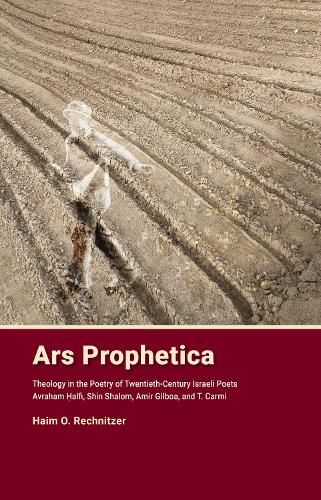Readings Newsletter
Become a Readings Member to make your shopping experience even easier.
Sign in or sign up for free!
You’re not far away from qualifying for FREE standard shipping within Australia
You’ve qualified for FREE standard shipping within Australia
The cart is loading…






In Ars-Prophetica, Haim O. Rechnitzer uncovers and recovers the theological elements within the poetry of four renowned Hebrew-Israeli poets. First and foremost, Rechnitzer introduces major works of modern Hebrew poetry that are viewed as part of the "secular" heritage of the renewed Hebrew-Israeli culture, demonstrating these works' relevance to general theological discourse and to the canon of Mahshevet Israel (Jewish thought). Rechnitzer's readings illuminate the poems' multiplicity of meanings, contextualizing the works not only within biblical sources-a prevalent practice of modern Hebrew reading-writing-but also within an intricate net of texts that present "theological worldviews," such as Heikhalot literature, kabbalah and Hasidism. Thus, Rechnitzer, as he develops a systematic theological interpretation of Hebrew-Israeli poetry, introduces readers to a "new, vibrant, Hebrew-Jewish-Secular Theology." Rechnitzer's insights, and his method, will illuminate the discussion of all poetry that converses openly, or elusively, with Jewish texts.
$9.00 standard shipping within Australia
FREE standard shipping within Australia for orders over $100.00
Express & International shipping calculated at checkout
In Ars-Prophetica, Haim O. Rechnitzer uncovers and recovers the theological elements within the poetry of four renowned Hebrew-Israeli poets. First and foremost, Rechnitzer introduces major works of modern Hebrew poetry that are viewed as part of the "secular" heritage of the renewed Hebrew-Israeli culture, demonstrating these works' relevance to general theological discourse and to the canon of Mahshevet Israel (Jewish thought). Rechnitzer's readings illuminate the poems' multiplicity of meanings, contextualizing the works not only within biblical sources-a prevalent practice of modern Hebrew reading-writing-but also within an intricate net of texts that present "theological worldviews," such as Heikhalot literature, kabbalah and Hasidism. Thus, Rechnitzer, as he develops a systematic theological interpretation of Hebrew-Israeli poetry, introduces readers to a "new, vibrant, Hebrew-Jewish-Secular Theology." Rechnitzer's insights, and his method, will illuminate the discussion of all poetry that converses openly, or elusively, with Jewish texts.